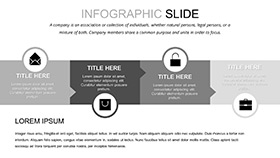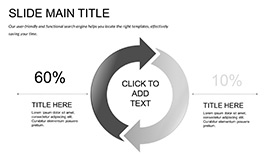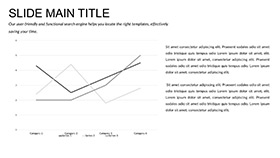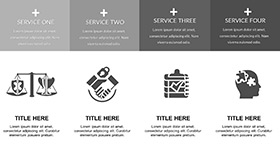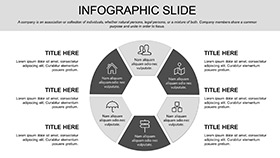Unlock the intricate dance of atoms with a presentation tool that's as precise as the science it represents. The Chemistry Molecular Structure Keynote Template is your gateway to delivering captivating lectures, research defenses, or workshop sessions that make abstract chemical concepts tangible. Tailored for chemistry enthusiasts - from high school teachers sparking curiosity in budding scientists to university professors unpacking quantum mechanics - this template features 28 specialized diagrams that bring molecular models to life. Compatible with Keynote on macOS, it includes three master layouts for seamless structure and seven vibrant color schemes to match your lab's aesthetic or institution's branding. Forget fumbling with generic shapes; these vector-based illustrations, like rotatable 3D-like bonds and orbital diagrams, allow you to layer in real data from tools like ChemDraw. Imagine a student presentation where a hybridization slide morphs to reveal sp3 configurations, holding the audience's attention through visual storytelling. Or a conference proposal where reaction mechanisms unfold step-by-step, clarifying pathways that words alone can't capture. This isn't just a slide deck - it's a catalyst for understanding. Secure yours for $22 and transform how you teach and share chemistry today.
Essential Features for Scientific Precision
Crafted with input from educators, this Keynote template prioritizes accuracy and ease. The three background options - ranging from sterile white for formal talks to subtle periodic table motifs - set a professional yet engaging tone. Dive into the 28 diagrams: from Lewis dot structures to energy level charts, each is fully scalable and animation-friendly, perfect for demonstrating electron transfers.
Customization flows naturally in Keynote's environment. Adjust bond angles in molecular skeletons with precision tools, or swap isotopes in mass spectrometry visuals. The seven color schemes, inspired by elemental palettes (think fiery reds for halogens), ensure diagrams pop without clashing. Plus, built-in placeholders for equations and formulas integrate LaTeX-like rendering for pro-level polish.
- Interactive Elements: Hyperlinked navigation for jumping between related concepts, like from valence shells to bonding types.
- Media Integration: Slots for embedding molecular simulation videos or AR previews via Keynote's media browser.
- Accessibility Tools: High-contrast options and descriptive alt text for diagrams, supporting diverse learners.
These features turn preparation from a chore into a creative process, empowering you to focus on the science rather than the setup.
Practical Use Cases in Education and Research
Chemistry thrives on visualization, and this template excels in real scenarios. Consider a high school lesson on organic nomenclature: Use the ring structure diagram to build benzene from scratch, adding substituents via drag-and-drop. Students follow along as you animate the addition reactions, reinforcing retention through motion. A teacher in a STEM program adapted this for a virtual class, layering in polls for naming challenges - engagement soared as visuals bridged the screen gap.
Empowering Research Proposals
For grad students defending theses, the template's pathway diagrams shine. Outline a synthesis route with arrow flows, embedding yield data in adjacent tables. Step one: Sketch your molecule on the central slide. Step two: Branch to mechanism sub-slides, using build effects to reveal intermediates. Step three: Conclude with spectral analysis charts, comparing predicted vs. observed peaks. This methodical approach impressed a panel at a recent ACS meeting, turning nerves into nods of approval.
- Gather your spectral data and import as images for overlay on IR/UV diagrams.
- Use Keynote's magic move for smooth transitions between conformer views.
- Export sections as standalone PDFs for handout supplements.
Workshops and Industry Seminars
Pharma pros presenting drug interactions find the binding site illustrations invaluable. Customize affinity curves to plot Kd values, then zoom into pocket diagrams for ligand fits. In one environmental seminar, a researcher used the polymer chain slide to depict microplastic degradation, animating bond breaks to underscore persistence - attendees left with a clearer grasp of the issue.
Across these uses, the template demystifies complexity, fostering discussions that advance knowledge.
Mastering Customization in Keynote
Harness Keynote's strengths with targeted tweaks. Start by editing masters to embed recurring elements like a molecule watermark. For diagrams, group components for bulk recoloring, ensuring consistency in multi-state animations. Integrate external data by linking to Numbers spreadsheets for live-updating equilibrium constants.
Avoid common pitfalls: Test on external displays to confirm color fidelity, and use inspector's build order for phased reveals in equilibrium slides. Versus stock Keynote themes, this offers domain-specific depth, saving iterations while amplifying impact.
The Edge This Template Provides
In a field where precision matters, generic tools fall short - this template aligns with pedagogical best practices, like those echoed in active learning strategies, to make sessions interactive and memorable. It's versatile enough for K-12 demos yet robust for peer-reviewed talks, giving users an unfair advantage in clarity.
Bring molecular magic to your next presentation. Grab the Chemistry Molecular Structure Keynote Template for $22 and ignite scientific curiosity.
Frequently Asked Questions
Is this template compatible with older Keynote versions?
Yes, it supports Keynote 10 and above, with full feature access on recent macOS updates.
How do I add my own molecular images?
Simply drag images into placeholders or use the media tab to insert and mask for seamless fitting.
Can animations be turned off for print?
Absolutely - disable builds in the inspector, then export as PDF for static versions.
Does it include periodic table elements?
Core diagrams focus on structures, but you can add custom tables via the shapes library.
What's the file format for sharing?
Save as .key for editing or .kth theme for application to new decks.
Are there resources for beginners?
Built-in tooltips guide edits; for more, Keynote's help menu covers advanced diagram handling.




















